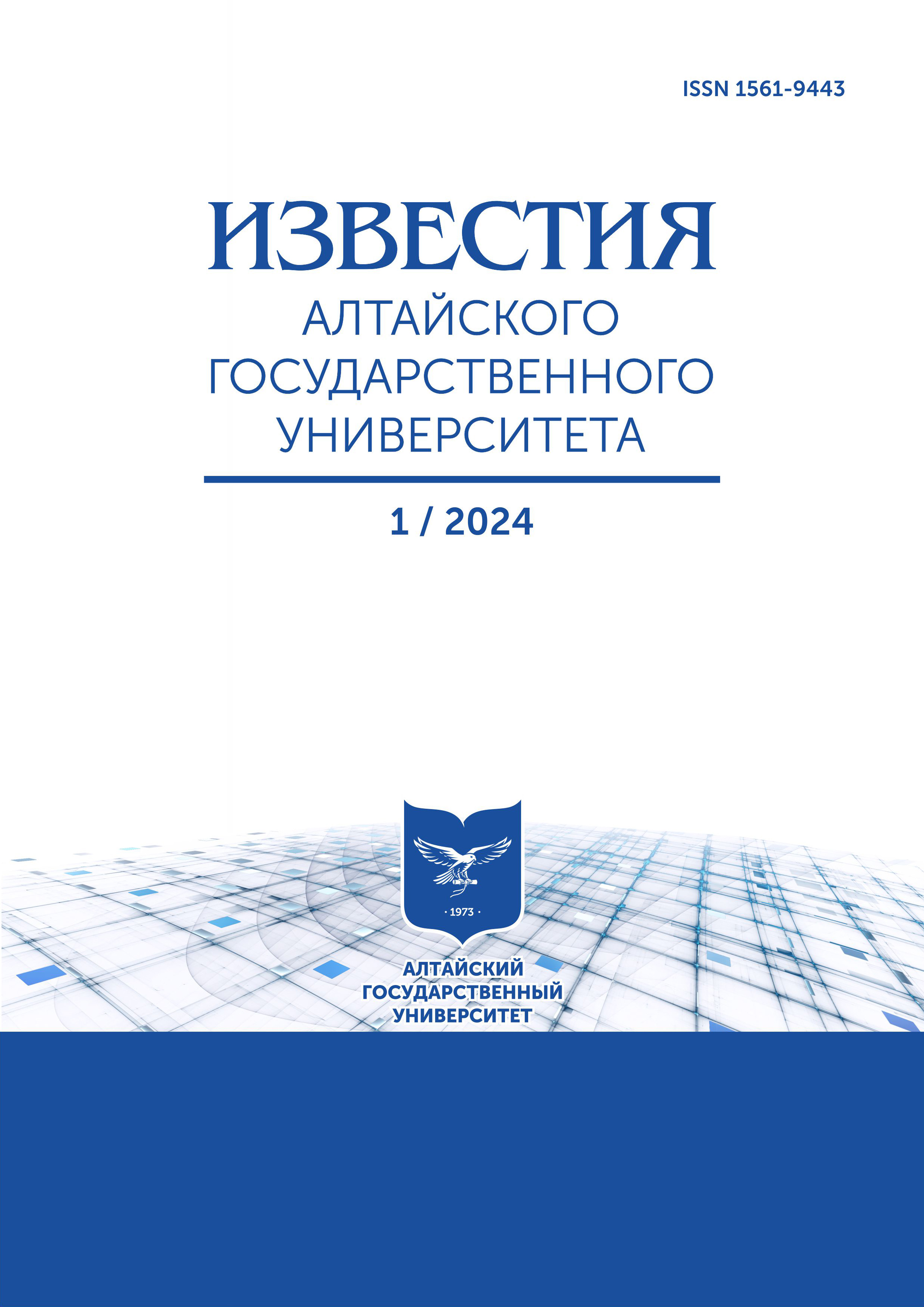Research on Assessing the Quality of Students’ Training Using Data Mining Methods
УДК 519.6:004.89
Abstract
The article is devoted to the application of data mining methods to assess the quality of general education using the official data of the final examination results in the Altai Region. The methods ofdescriptive data analysis, correlation data analysis, data clustering, classification, and regression are used in the study. The obtained results identify the best data mining algorithms for the considered problem. The most dependent patterns are revealed during the education quality assessment using methods of intellectual analysis. The conducted study utilizes the computer and graphical methods of computational mathematics and provides the results with theoretical and applied significance. The developed programs can serve as the basis for prospective research plans to assess the quality of education using the analysis of the final examination results, as well as to provide the foundation for the quantitative assessment of such analysis.
Downloads
Metrics
References
Методология и критерии оценки качества общего образования в общеобразовательных организациях на основе практики международных исследований качества подготовки обучающихся (утв. приказами Рособрнадзора № 590, Минпросвещения России № 219 от 06.05.2019) (ред. от 11.05.2022) // сайт Консультант плюс. URL: https:// www.consultant.ru/document/cons_doc_LAW_325095/ (дата обращения: 18.11.2023).
Сергеева С.Ю., Обревко Е.Д. Современные подходы и методы оценки качества образования // Молодой ученый. 2019. № 37 (275). С. 162-165.
Соловьев И.В., Филатов С.В. Интегральные оценки качества образования // ИТС. 2014. № 2 (75). С. 14-18.
Рямов РФ. Оценка качества образования — инструмент воздействия на развитие системы образования // Вестник Башкирск. ун-та. 2012. № 3. С. 1423-1425.
О проведении Федеральной службой по надзору в сфере образования и науки мониторинга качества подготовки обучающихся общеобразовательных организаций в форме всероссийских проверочных работ в 2023 году : Приказ Федеральной службы по надзору в сфере образования и науки от 23.12.2022 г. № 1282. // сайт Федеральной службы по надзору в сфере образования и науки. URL: https://obrnadzor.gov.ru/wp-content/uploads/2023/01/1282. pdf (дата обращения: 18.11.2023).
Официальные данные результатов выпускных проверочных работ по Алтайскому краю // сайт Системы аналитики Всероссийских проверочных работ в Алтайском крае. URL: https://stat.22edu.ru/ (дата обращения: 18.11.2023).
Маккинни У. Python и анализ данных. М.: ДМК Пресс, 2020. 540 с.
Скиена Стивен С. Наука о данных. СПб.: ООО «Диалектика», 2020. 544 с.
Абдрахманов М.И. Визуализация данных. Matplotlib. Seaborn. Mayavi, 2020. 412 с.
Баймуратов И.Р. Методы автоматизации машинного обучения СПб.: Университет ИТМО, 2020. 40 с.
Брантон С.Л., Куц Дж.Н. Анализ данных в науке и технике. М.: ДМК Пресс,, 2021. 574 с.
Copyright (c) 2024 Татьяна Викторовна Михеева

This work is licensed under a Creative Commons Attribution 4.0 International License.
Izvestiya of Altai State University is a golden publisher, as we allow self-archiving, but most importantly we are fully transparent about your rights.
Authors may present and discuss their findings ahead of publication: at biological or scientific conferences, on preprint servers, in public databases, and in blogs, wikis, tweets, and other informal communication channels.
Izvestiya of Altai State University allows authors to deposit manuscripts (currently under review or those for intended submission to Izvestiya of Altai State University) in non-commercial, pre-print servers such as ArXiv.
Authors who publish with this journal agree to the following terms:
- Authors retain copyright and grant the journal right of first publication with the work simultaneously licensed under a Creative Commons Attribution License (CC BY 4.0) that allows others to share the work with an acknowledgement of the work's authorship and initial publication in this journal.
- Authors are able to enter into separate, additional contractual arrangements for the non-exclusive distribution of the journal's published version of the work (e.g., post it to an institutional repository or publish it in a book), with an acknowledgement of its initial publication in this journal.
- Authors are permitted and encouraged to post their work online (e.g., in institutional repositories or on their website) prior to and during the submission process, as it can lead to productive exchanges, as well as earlier and greater citation of published work (See The Effect of Open Access).








